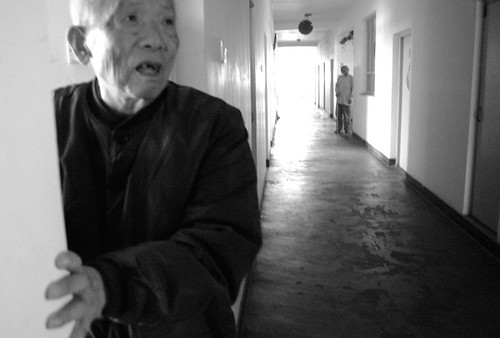The new President has surfed into office on a tidal wave of good will. Will he use it effectively to promote human dignity?
 Barack Hussein Obama has now been sworn in as the 44th President of the United States of America. His accession to that office shows that America has finally come to terms with what has often been called its "original sin", racism.
Barack Hussein Obama has now been sworn in as the 44th President of the United States of America. His accession to that office shows that America has finally come to terms with what has often been called its "original sin", racism.
He moves into the White House with a war chest of good will. The sight of two million enthusiastic admirers from all over America to attend the inauguration spoke for itself. More than 80 percent of Americans approve of how he has handled the transition from the Bush administration. A BBC poll also shows widespread and growing optimism about his presidency around the world. In 17 countries polled, 67 percent of people think it will lead to improved relations between the US and the rest of the world. Even in the world’s largest Muslim country, the figure is 64 percent.
This is an historic opportunity. As the leader of the world’s most powerful nation, President Obama can set the agenda for human dignity in many areas, domestically and internationally. But will he?
While there is much to recommend Mr Obama, the editors of MercatorNet have some definite points of concern and disagreement with him, mostly focussed on the issues of life and human dignity. As he takes office and begins to exercise his executive powers, we pledge to watch him on these key issues. (Please add comments about other issues which you think should be on our agenda.)
* * * * *
The possibility of a global financial meltdown didn’t emerge until late in the election campaign – but it has arrived. Saving jobs and keeping Americans in work has become Obama’s top priority. The economy lost 760,000 jobs last year and unemployment could rise towards 9 percent by the end of the year. Without work, people lose their sense of self-worth and dignity.
No issue is more inflammatory for Americans than abortion. Other countries follow the US lead on abortions rights, so what the new President decides matters for the whole world. Obama has already declared that he will back abortion rights. Back in 2007, he promised Planned Parenthood that he would sign the controversial Freedom of Choice Act (FOCA) as soon as he was elected. This will effectively guarantee a right to abortion up to birth and would override any state legislation to the contrary. He should face up to the fact that African Americans are a specific target of the abortion industry.
Obama has promised to lift restrictions on federal funding for human embryonic stem cell research imposed by President Bush. This matters, even though the human beings which will be sacrificed in scientific laboratories are only visible under the microscope. Without restrictions of some kind, scientists will also begin creating embryonic clones and even chimera and cross-species embryos with Federal funding. (This is already permitted in the UK.) In any case, he ought to know that despite millions of dollars and years of effort, scientists have made no progress towards cures with destructive embryo research. But significant progress has been made with other, ethically acceptable, stem cells. Ethical science, in the end, is always the best solution.
Obama says that he will provide affordable, accessible health care for all Americans. This will be a huge battle, especially in the current economic crisis. About 47 million of them are uninsured. People without insurance receive less preventive care, are diagnosed at more advanced disease stages, receive less therapeutic care and have higher mortality rates than people with insurance.
The United States is an ageing society. Providing for the elderly is one of the greatest challenges faced by the new Administration. At the moment the long-term unfunded cost of programs for the elderly has ballooned out to US$43 trillion (not billion, trillion). Obama has promised to be honest about the solvency of social security programs. If he’s not, American seniors will suffer. Fixing social security must be the hardest job in American politics – and one of the most serious.
Because of his Kenyan heritage, Obama has a special link with Africa, the poorest, most violent, most underdeveloped, least healthy continent. But with its youthful population and vibrant people, Africa could be a global asset. Helping sub-Saharan Africa to develop ought to be one of Obama’s top foreign policy objectives. He mustn’t squander this historic opportunity. One way of squandering it would be to let the population control movement (aka reproductive health) dictate American policy. Since the movement is racist, it would not be a good look for a black president.
The war in Gaza is a reminder that American foreign policy has failed to make progress in the conflict between Israel and Palestine. Life in Gaza is the pits: a densely-populated city with a high birthrate, high unemployment, and high poverty levels. After Israel’s invasion, it looks at though an earthquake had hit. Creative diplomacy is needed to break through the grievances on both sides so that both Israelis and Palestinians can live in peace and security. Instead of cynically tossing this in the too-hard basket, Obama should apply his own advice: Yes, we can.
By: Michael Cook
 Parents have no idea of the extent to which big business targets children through their use of new media, according a new book out in Britain. Consumer Kids, by Ed Mayo and Agnes Nairn, says that children are spending twice as much time in front of a TV or computer screen as in the classroom and have become a captive audience for marketers. The relentless marketing through websites and other media is an intrusion into children’s privacy and is destroying family life, the authors say.
Parents have no idea of the extent to which big business targets children through their use of new media, according a new book out in Britain. Consumer Kids, by Ed Mayo and Agnes Nairn, says that children are spending twice as much time in front of a TV or computer screen as in the classroom and have become a captive audience for marketers. The relentless marketing through websites and other media is an intrusion into children’s privacy and is destroying family life, the authors say. Family-minded people need to think globally as well as act locally, according to a group working to establish a family domain on the internet. Dotfam, an association registered in Spain last year, wants the family to be present in the world of the internet as an institution and a reference point. To this end it has applied to ICANN, the US-based body that co-ordinates the internet’s naming system, for approval of the top-level domain name, .fam
Family-minded people need to think globally as well as act locally, according to a group working to establish a family domain on the internet. Dotfam, an association registered in Spain last year, wants the family to be present in the world of the internet as an institution and a reference point. To this end it has applied to ICANN, the US-based body that co-ordinates the internet’s naming system, for approval of the top-level domain name, .fam Christian families should not shun the mass media, which often project false values, but they should actively participate in shaping media culture and infuse it with their own values, a Vatican spokesman told a huge gathering in Mexico City. Archbishop Claudio Maria Celli, president of the Pontifical Council for Social Communications, was addressing sixth World Meeting of Families, a Catholic event begun with the encouragment of the late Pope John Paul II.
Christian families should not shun the mass media, which often project false values, but they should actively participate in shaping media culture and infuse it with their own values, a Vatican spokesman told a huge gathering in Mexico City. Archbishop Claudio Maria Celli, president of the Pontifical Council for Social Communications, was addressing sixth World Meeting of Families, a Catholic event begun with the encouragment of the late Pope John Paul II. As we move each day closer to the Age of Obama, few things have been as chilling – or revealing –as that gesture offered as a grand show of “reaching out to the other side”: the invitation to the Rev. Rick Warren. Warren is the author of that highly noted work The Purpose Driven Life. He also presided over that famous session at the Saddleback Forum, in which Obama remarked, on the subject of abortion, that the question of when human life begins was one beyond his “pay grade.” That encounter turned out to be, for Obama, a minor disaster. All of which seemed to bespeak a large nature when he invited Pastor Warren to give one of the invocations at the upcoming inauguration.
As we move each day closer to the Age of Obama, few things have been as chilling – or revealing –as that gesture offered as a grand show of “reaching out to the other side”: the invitation to the Rev. Rick Warren. Warren is the author of that highly noted work The Purpose Driven Life. He also presided over that famous session at the Saddleback Forum, in which Obama remarked, on the subject of abortion, that the question of when human life begins was one beyond his “pay grade.” That encounter turned out to be, for Obama, a minor disaster. All of which seemed to bespeak a large nature when he invited Pastor Warren to give one of the invocations at the upcoming inauguration. 

 Maybe I should make a New Year's resolution to avoid spending so much time following the news, in order to help me cultivate a more cheerful disposition. Reading the newspaper can often be an exercise in discouragement, not just because of the actual contents but also because of the relative importance given to news items and the types of items that happen to be published simultaneously. We shake our heads as we note full page stories with accompanying colour photos of the Jolie-Pitts appearing in the same editions as tiny articles picked up from the wire services about families left homeless after a house fire, or death tolls from famine.
Maybe I should make a New Year's resolution to avoid spending so much time following the news, in order to help me cultivate a more cheerful disposition. Reading the newspaper can often be an exercise in discouragement, not just because of the actual contents but also because of the relative importance given to news items and the types of items that happen to be published simultaneously. We shake our heads as we note full page stories with accompanying colour photos of the Jolie-Pitts appearing in the same editions as tiny articles picked up from the wire services about families left homeless after a house fire, or death tolls from famine. Demographic Winter is an independently produced film describing the consequences of the population collapse of industrialized countries. I have been amazed at the response, or I should say, lack of response to this film. Many of the reviewers either dismissed the thesis of the film, or changed the subject. The lack of serious American attention is surprising, considering that
Demographic Winter is an independently produced film describing the consequences of the population collapse of industrialized countries. I have been amazed at the response, or I should say, lack of response to this film. Many of the reviewers either dismissed the thesis of the film, or changed the subject. The lack of serious American attention is surprising, considering that
 Would Chicago Public School CEO Arne Duncan make a good secretary of education? There are reasons to wonder if President-elect
Would Chicago Public School CEO Arne Duncan make a good secretary of education? There are reasons to wonder if President-elect 





